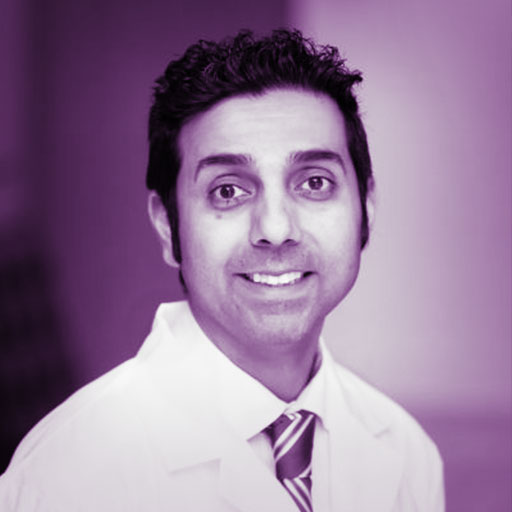Episode 95: Fertility 101: Endometriosis
The Fertility 101 Series, because there’s no shortage of daunting terms to keep your mind running, is a quick and dirty breakdown on a specific topic with insights from a fertility expert.
In this episode, you’ll learn about endometriosis, a condition in which a woman’s endometrial tissue grows inside of her abdomen. Each woman is different, but it’s common that endometriosis generates pelvic pain around a woman’s menstrual cycle or during sex, and it can cause infertility. Although it sounds intimidating for someone trying to conceive, many women facing endometriosis have found success through IVF and other treatments. And, ironically enough, pregnancy has been found to be an effective relief from symptoms.
Dr. Ravi Gada, Fertility Specialist at Dallas Fort Worth Fertility Associates, part of the Progyny Provider Network, joins us to cover everything you need to know about endometriosis including what it is, how to diagnosis, treatment, why it can cause infertility, and where to start if you think you may have it.
Expert: Dr. Ravi Gada, Dallas–Fort Worth Fertility Associates
Host: Dan Bulger
In the Dallas-Fort Worth metropolitan area? Schedule an appointment with Dr. Ravi Gada at Dallas Fort Worth Fertility Associates through their website.
Also check out our podcast series: Endometriosis and Fertility:
- Episode 30: Endometriosis & Fertility: Jessica Smith-Payne
- Episode 31: Endometriosis and Fertility: Trying IVF Before Being Diagnosed
- Episode 31: Endometriosis and Fertility: Trying IVF After Being Diagnosed
- Episode 32: Endometriosis and Fertility: Promoting Awareness through Endo What?
- Episode 33: Endometriosis and Fertility: Finding Support Through a Facebook Group: Nancy’s Nook
- Episode 64: Endometriosis and Fertility: The Purpose of the Endometriosis Foundation of America
- Episode 65: Endometriosis and Fertility: The Intersection Between Endometriosis and Sex
For more information, visit Progyny’s Podcast page and Progyny’s Education page for more resources.
Be sure to follow us on Instagram, @ThisisInfertilityPodcast and use the #ThisisInfertility.
Have a question, comment, or want to share your story? Email us at thisisinfertility@progyny.com.
Here are some highlights from this episode:
What is Endometriosis?
1:00–2:05
Dr. Ravi Gada: Endometriosis is a disease process in which your endometrial tissue grows inside of your abdomen. That’s a little bit complicated, so I want to break it down a little bit further. Inside the uterine cavity or inside the uterus, you have endometrial tissue, and when you have a period, it’s that lining of tissue that you shut off known as your endometrium. And it usually stays contained within the cavity of the uterus, meaning it stays inside your uterus and you have a period and every month you set it off or clean it out. And then that lining builds up again the next month, and you just keep doing that month after month. What happens is sometimes that tissue that’s supposed to stay contained within the uterine cavity ends up making its way into your abdomen, so it could make it onto your bowels or intestines onto your bladder wall onto other parts of your abdomen where it’s not supposed to be. And that tissue is endometrial tissue, but it’s in the wrong spot. And so, then we call it endometriosis.
How do You Treat Endometriosis?
5:40–6:35
Dr. Ravi Gada: So when it comes to treating endometriosis, there are different ways to treat it. One is just observation. Sometimes my patients will ask, “Well, does this even need to be treated?” And the answer is, we could just observe it. It is a progressive disease, meaning it can get worse over time, but it doesn’t always. And if the pain that someone is having isn’t bothering them so much, but we know they have endometriosis, you could actually just follow that without doing any intervention or treatment. You could also do medical treatment, which is putting them on birth control pills or other medications or medical therapies to treat or suppress the endometriosis. Or lastly, going back to the surgical intervention, you can do surgical intervention or surgery to go in and remove or excise the endometriosis.
How Does Endometriosis Impact Fertility?
6:42–7:35
Dr. Ravi Gada: The reason that endometriosis can have an impact on infertility is thought to be around the process of inflammation. So, when you have these abnormal cells or abnormal tissue inside your abdomen, could it be causing an inflammatory response where now an egg or embryo is not able to do as well or attached to the uterus? So that’s the thought process behind it. Sometimes endometriosis can grow on an ovary known as endometrioma. And then it’s even closer to where the eggs reside. And so theoretically, could that impact the egg quality and or uterus? But most of the time, what we see is women who have endometriosis are able to achieve a pregnancy by managing those symptoms and treating things with medical interventions or IVF.

Host
Dan has been in the healthcare industry for the last six years as a multimedia content producer. Better known as ‘Video Dan’ he as interviewed numerous doctors, patients and other experts in the world of fertility. He’s also the producer for this podcast, This is Infertility. On a personal note Dan’s parents started fostering kids when he was four years old, and he considers himself a proud older brother to over 100 foster children.

Guest
Dr. Ravi Gada was born and raised in Lubbock, Texas. He received his Bachelor’s degree in Biochemistry at the University of Texas at Austin. Dr. Gada entered Texas Tech University School of Medicine in 2001 and completed a dual M.D. and M.B.A of Health Management in 2005. During medical school, Dr. Gada served as his class president for three years. He then moved to Minnesota where he completed his residency in Obstetrics and Gynecology at the world-famous Mayo Clinic.
While there, he was voted best resident researcher, best resident laparoscopic surgeon, and selected as the administrative chief resident. In 2009, Dr. Gada continued his training for an additional three years at Mayo Clinic and completed his fellowship in Reproductive Endocrinology and Infertility. During his fellowship, he also completed his second Master’s degree in Biomedical Sciences with a focus in Reproductive Endocrinology. Dr. Gada has also been very active with the American College of Obstetricians and Gynecologist and served as an executive board member from 2010 – 2012.
Dr. Ravi Gada, Reproductive Endocrinologist at Dallas-Fort Worth Fertility Associates
Dr. Ravi Gada was born and raised in Lubbock, Texas. He received his Bachelor’s degree in Biochemistry at the University of Texas at Austin. Dr. Gada entered Texas Tech University School of Medicine in 2001 and completed a dual M.D. and M.B.A of Health Management in 2005. During medical school, Dr. Gada served as his class president for three years. He then moved to Minnesota where he completed his residency in Obstetrics and Gynecology at the world-famous Mayo Clinic.
While there, he was voted best resident researcher, best resident laparoscopic surgeon, and selected as the administrative chief resident. In 2009, Dr. Gada continued his training for an additional three years at Mayo Clinic and completed his fellowship in Reproductive Endocrinology and Infertility. During his fellowship, he also completed his second Master’s degree in Biomedical Sciences with a focus in Reproductive Endocrinology. Dr. Gada has also been very active with the American College of Obstetricians and Gynecologist and served as an executive board member from 2010 – 2012.
On a personal note, Dr. Gada is very happy and excited to return to Texas. He enjoys traveling, sports, and spending time with his friends and family.



